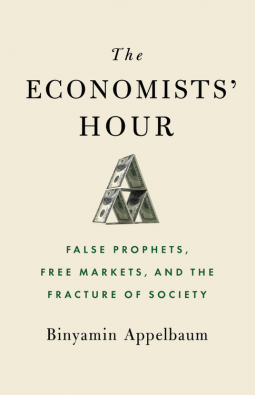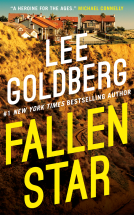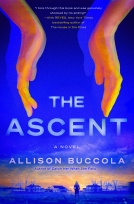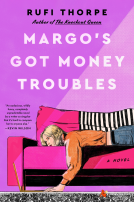
The Economists' Hour
False Prophets, Free Markets, and the Fracture of Society
by Binyamin Appelbaum
This title was previously available on NetGalley and is now archived.
Send NetGalley books directly to your Kindle or Kindle app
1
To read on a Kindle or Kindle app, please add kindle@netgalley.com as an approved email address to receive files in your Amazon account. Click here for step-by-step instructions.
2
Also find your Kindle email address within your Amazon account, and enter it here.
Pub Date Sep 03 2019 | Archive Date Dec 03 2019
Description
Before the 1960s, American politicians had never paid much attention to economists. But as the post-World War II boom began to sputter, economists gained influence and power.
In The Economists' Hour, Binyamin Appelbaum traces the rise of the economists, first in the United States and then around the globe, as their ideas reshaped the modern world, curbing government, unleashing corporations and hastening globalization.
Some leading figures are relatively well-known, such as Milton Friedman, the elfin libertarian who had a greater influence on American life than any other economist of his generation, and Arthur Laffer, who sketched a curve on a cocktail napkin that helped to make tax cuts a staple of conservative economic policy.
Others stayed out of the limelight, but left a lasting impact on modern life: Walter Oi, a blind economist who dictated to his wife and assistants some of the calculations that persuaded President Nixon to end military conscription; Alfred Kahn, who deregulated air travel and rejoiced in the crowded cabins on commercial flights as the proof of his success; and Thomas Schelling, who put a dollar value on human life.
Their fundamental belief? That government should stop trying to manage the economy.Their guiding principle? That markets would deliver steady growth, and ensure that all Americans shared in the benefits.
But the Economists' Hour failed to deliver on its promise of broad prosperity. And the single-minded embrace of markets has come at the expense of economic equality, the health of liberal democracy, and future generations.
Timely, engaging and expertly researched, The Economists' Hour is a reckoning -- and a call for people to rewrite the rules of the market.
A Wall Street Journal Business BestsellerWinner of the Porchlight Business Book Award in Narrative & Biography
Advance Praise
"I very much enjoyed reading The Economists’ Hour, an entertaining and well-written look at how market-oriented ideas rose from the academy and transformed nations. I do not agree with each and every perspective, but found this a valuable and highly recommendable book, which I devoured in a single sitting." —Tyler Cowen, author of The Great Stagnation
“Binyamin Appelbaum has written a powerful must-read for all those interested in reinvigorating the credibility of economics, especially in policymaking circles. Through an engaging discussion of how economists’ influence grew and spread, he shows how free-market economics evolved into an over-promising ‘affirming religion,’ only to disappoint too many of its followers and lead others astray. His insightful analysis also helps us identify what’s needed to ensure that the market economy remains ‘one of humankinds most awesome inventions.’” —Mohamed A. El-Erian, author of New York Times bestsellers When Markets Collide and The Only Game in Town
Available Editions
| EDITION | Other Format |
| ISBN | 9780316512329 |
| PRICE | $30.00 (USD) |
| PAGES | 448 |
Featured Reviews
I would never intentionally read a book written about economic theory, but I received this as a Netgalley e-review copy.
Reading this is an eye-opener, demonstrating how economists' theories can have a huge influence on government policy and how this can affect our daily lives in unexpected ways. This may not sound sexy but it sure is eye-opening.
I really enjoyed this economic history presented by Binyamin Applebaum. So well-researched and informative. I really like I came away with a fantastic amount of knowledge about the history and current perspectives of economics.
 Stephen R, Reviewer
Stephen R, Reviewer
Thanks to Netgalley I got offered a pre-publication copy: it comes out on September 3rd so I at least managed to finish reading it in time. I was abit worried I wouldn't since the ebook reader still thinks I'm about halfway through. That is because the second half is all the footnotes. This book is indeed well researched even if it is not academic. The author is not himself an economist but a New York Times editorial writer - and this is his first book. There is no doubt he can write. The text flows along nicely - just as long as you leave the footnotes till later.
For me much of the content is very familiar because I lived through all of it. Perhaps not in the front lines but I was certainly impacted and I did follow economic policy very closely. For three years I was actually an Economic Adviser to the British Government, during the Thatcher era, which was the reason I left and came to Canada - where I was surprised to find that Thatcherism followed me here.
I started doing economics in grammar school and wanted to do it as a joint honours degree - but Nottingham would not agree. So I have a politics degree but spent at least a third of my time studying economics, and specialised in the economics of transport and public sector enterprises. I also went to the London School of Economics so my masters degree is an MSc Econ but in planning studies - which, of course, was a lot of economics too. So much so that that RTPI (the UK Planners Institute) doesn't recognise the qualification because it isn't all about design.
So it also needs to be understood that there is no Economists Institute - so lots of people can call themselves economists even though they have very little formal economic education but usually some very hard and fast political opinions.
I wasn't surprised by anything that I read in this book, although it did refresh my memory. And I was not at all as well informed about American economists - even though my Nottingham degree did include American Studies - and some of the names were unfamiliar to me. But the policies, of course, only too familiar.
The book can be summarised as setting out the case against unregulated free markets. What we know for a certainty is that the predictions made by people like Milton Friedman have turned out to be wrong. And that should come as no surprise since the Great Crash of 1929 - and all the ones since which got more carefully nuanced titles - was caused by the unregulated market.
The last crash was in 2008 - and since then policies have changed a bit, but not nearly enough, and no-one seems to have come up with a generally accepted formula for how markets ought to be regulated - and what should happen to those who break the rules. In the United States no-one of any significance served any kind of sentence - the only trials were of underlings and foot soldiers. The great fear was that of the banksters were punished effectively, the banks would close and a lot of people would lose their jobs, which is not what you want to happen in a depression. It makes matters worse.
What is missing in this book is the whole area that economics has done so poorly. "Externalities" are things that are very difficult to price, and even harder to police. So, far too often, they get ignored. The result is what we see today - a world which is heating up rapidly, due to human activities, driven by greed and willful ignorance, where not just human civilisation but all life on the planet is now at risk. The collapse of civilisations is nothing new, and we have studied them extensively but refused to heed of the lessons. And the current "winners" are all convinced of their own rightness.
So not only do we not have an economic prescription at the end of the book to show the way that we need to move, but the whole issue of "the environment" - which so many people still view as separate from and in some cases in opposition to - the economy is just ignored. Maybe there will be a second edition that tackles that, or perhaps another book that goes through the scientific consensus on anthropogenic climate change and comes up with some economic policy proposals that might help.
Not that the current generation of politicians are likely to pay the slightest bit of attention. As Applebaum notes after every market collapse the fascists emerge from the woodwork and look around for some minorities to blame. The current occupants of the White House, 10 Downing Street and even 24 Sussex Drive are all unlikely to change their policies. And there may be even worse to come. I wish I could say I feel optimistic about that, and nothing I read in this book manages to raise my spirits.
I think this is a necessary book for younger people than me - and will be valuable for those who have not been paying attention to economic policy until it hits them hard. The people who most need to read it, won't. And there's no point in trying to argue with people who prefer ignorance.
 Nancy F, Reviewer
Nancy F, Reviewer
A Readable Look at How Economists Shaped the World
When the economy was booming after WWII, economists were found primarily in academia, but as the economy slowed and solutions were sought, the economists came out of hiding. Starting with Milton Friedman, economists entered the political arena, and their ideas began to shape the economy not just of the United States, but of the world.
The author tells the story of how these economists came to the forefront of political thought with their belief that the economy given the impetus of free markets would bring prosperity and did not need so much government intervention. The author tells the stories of Walter Oi, whose calculations persuaded President Nixon to end conscription, and Thomas Shelling who made value assessments of human life to underpin his suggested policies.
This book is very readable. It focuses on the stories of individual economists, their ideas, and how the ideas impacted the lives of people. I enjoyed the book very much. It tells you a lot about policy and economics, but isn’t preachy or dry. The author uses his focus on individuals and episodes in their lives to bring this rather deep discipline to life. I highly recommend it.
I received this book from Net Galley for this review.


















